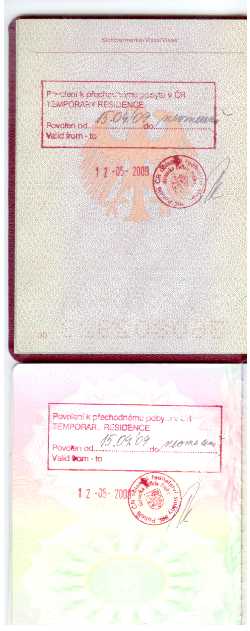Update November 2012 – The post below was written by me nearly three years in January 2010, just after my second Christmas in Prague. It continues to rank very high in Google & other search engines for anyone using the search term ‘Christmas in Prague’. Therefore, if you have just arrived here because of doing exactly that, rest assured that much of what appears below is still true, three years on. And if you are in Prague over Christmas 2012, details of our Christmas services can be found here.
Original post.

Having arrived in Prague in September 2008 in order to take up my post as Anglican Chaplain, it meant that Christmas 2009 was my second Christmas here. Therefore this time, I had a far clearer understanding of what I might expect to experience over the festive season.
Most Anglican clergy in the UK, see their largest congregations over the Christmas period. It was certainly my experience in North Oxfordshire that I could frequently have up to 25% – 30% of the population of one of my villages in Church either for a service of Lessons and Carols or on Christmas Eve/Christmas Day. Historically, the Church of England always used to use the number of Easter communicants as a means of measuring its numerical strength. But whilst these are still counted, increasingly the largest Church attendance figures are registered at Christmas services.
I have often reflected upon why this should be and have concluded that most people find the infant lying in the manger, very non-threatening over and against an adult man being put to death upon a cross. There is comfortableness about Christmas whereas Easter provides a real challenge. However, the Prague Anglican Chaplaincy currently maintains the more historic pattern, as my largest congregation since being here is still all those who worshipped at St. Clement’s on Easter Day 2009 as I have described in a previous blog post.
The reason why this should be the case arises from the nature of the regular congregation. The majority are English-speaking expatriates. Thus the Christmas-New Year period is seen as an occasion to return to their own home countries in order to celebrate the festival with their wider families and friends. This is further exacerbated by the fact that many in the congregation either teach in one of the various international schools in Prague and/or have children who attend one of these schools. The three week Christmas school holidays, together with summer months of July and August, provide the only real opportunity for a trip back ‘home’.
Therefore, like many UK Churches, our service of Lessons and Carols was somewhat displaced into the Advent Season and was held on the evening of Sunday 13th December. This allowed nearly all the regular congregation to attend as it was before the beginning of the Christmas exodus. Additionally, we were joined by a number of other regular worshippers – those who regularly attend Church once a year for the Carol service!!!
Despite so many of my regular congregation being away over Christmas, I still held a Midnight Eucharist on Christmas Eve. There were a scattering of regulars in attendance, together with various visitors spending Christmas in Prague, including a number of South Asian young people staying at Sir Toby’s Hostel. On Christmas Day morning at 11am, there were many more members of the regular congregation in attendance for the Family Eucharist. These were mainly ‘English-speaker married to Czech’ couples and their children who form a growing part of the congregation and bring an ever-increasing stability to it. As at midnight, numbers were also boosted by numerous visitors to Prague.
|
|
|
During December, Prague attracts many visitors because of its Christmas markets. These take place in various parts of the city, particularly in Staromestské námestí/Old Town Square. The markets are predominantly aimed at international visitors and we both particularly enjoyed seeing two more examples of ‘Czenglish’ that appear below.






